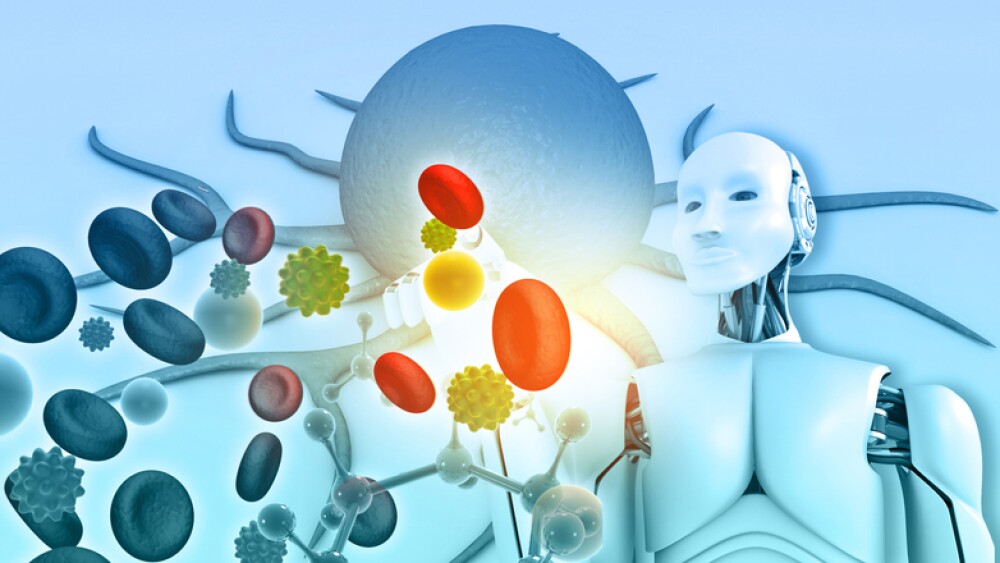Beyond the accuracy and reproducibility of the automated and label-free xCELLigence RTCA assay, its streamlined workflow and reduced costs are game changing.
Using xCELLigence Real-Time Cell Analysis (RTCA), Sanofi Pasteur scientists have developed an assay for accurate viral titer determination that is 5-times less labor intensive and 3.5-times cheaper than conventional methods
SAN DIEGO, Calif.--(BUSINESS WIRE)-- Accurate determination of viral titers is critical to vaccine development. Historically, titers have been determined using endpoint assays which are labor intensive, expensive, and time consuming. This is increasingly problematic in modern production facilities where bioprocess optimization is performed using high-throughput cell culture reactors that can produce batches of virus faster than they can be analyzed. Looking for a solution to this bottleneck, Sanofi scientist David Gaillac and his coworkers have just described a transformative new approach for viral titer determination using xCELLigence RTCA instruments.
Being able to accurately determine the concentration of infectious virus is essential not only for controlling vaccine dosing in patients, but also for optimizing the virus production process. As changes are made to the virus production protocol, changes in infectious titer are used as the readout. Whereas virus-infected cells within a cellular monolayer have traditionally been identified and counted using microscopy, which is both tedious and subjective, xCELLigence RTCA uses gold biosensors to dynamically monitor changes in host cell number, morphology, and cell-substrate attachment strength that occur as part of the virus cytopathic effect. When compared side by side with a traditional titer quantification assay, xCELLigence RTCA yielded results that were essentially identical. Beyond the accuracy and reproducibility of the automated and label-free xCELLigence RTCA assay, its streamlined workflow and reduced costs are game changing. During extensive optimization of a chimeric yellow fever dengue vaccine, the authors found that when compared to a traditional titer determination assay the xCELLigence RTCA approach “was 5-times less labor-intensive (operator time) and cost 3.5-times less (including operator time, reagents, consumables).”
On the basis of the above findings the authors reported having made a major change in their workflow, stating, “The RTCA assay presented here is now being used for titration of viruses to support our bioprocess studies.” To view their complete comparative analysis, which was just published in the Journal of Virological Methods, click here.
About xCELLigence® RTCA
xCELLigence® Real-Time Cell Analysis (RTCA) instruments utilize gold biosensors embedded in the bottom of microtiter wells to non-invasively monitor the status of adherent cells using the principle of cellular impedance. In short, cells act as insulators – impeding the flow of a miniscule electric current between electrodes. This impedance signal is measured automatically, at an interval defined by the user, and provides an extremely sensitive readout of cell number, cell size, cell-substrate attachment strength, and cell invasion/migration. xCELLigence® RTCA instruments are being used in both academia and industry for basic and applied applications ranging from cancer immunotherapy and cardiotoxicity to drug discovery and viral titer determination. To date xCELLigence® has been used in more than 1,400 publications, which can be viewed in a searchable library.
About ACEA Biosciences
Founded in 2002, ACEA Biosciences is a pioneer in the development and commercialization of high performance, cutting-edge cell analysis platforms for life science research. ACEA’s xCELLigence® impedance-based, label-free, real-time cell analysis instruments and NovoCyte® flow cytometer are used in pre-clinical drug discovery and development, toxicology, safety pharmacology, and basic academic research. More than 2,000 instruments have been placed globally.
For more information visit http://www.aceabio.com.
View source version on businesswire.com: http://www.businesswire.com/news/home/20171214005285/en/
Contacts
ACEA Biosciences, Inc.
Dr. Jeff Xue, 1-858-724-0928, x3075
jxue(at)aceabio(dot)com
Source: ACEA Biosciences, Inc.






